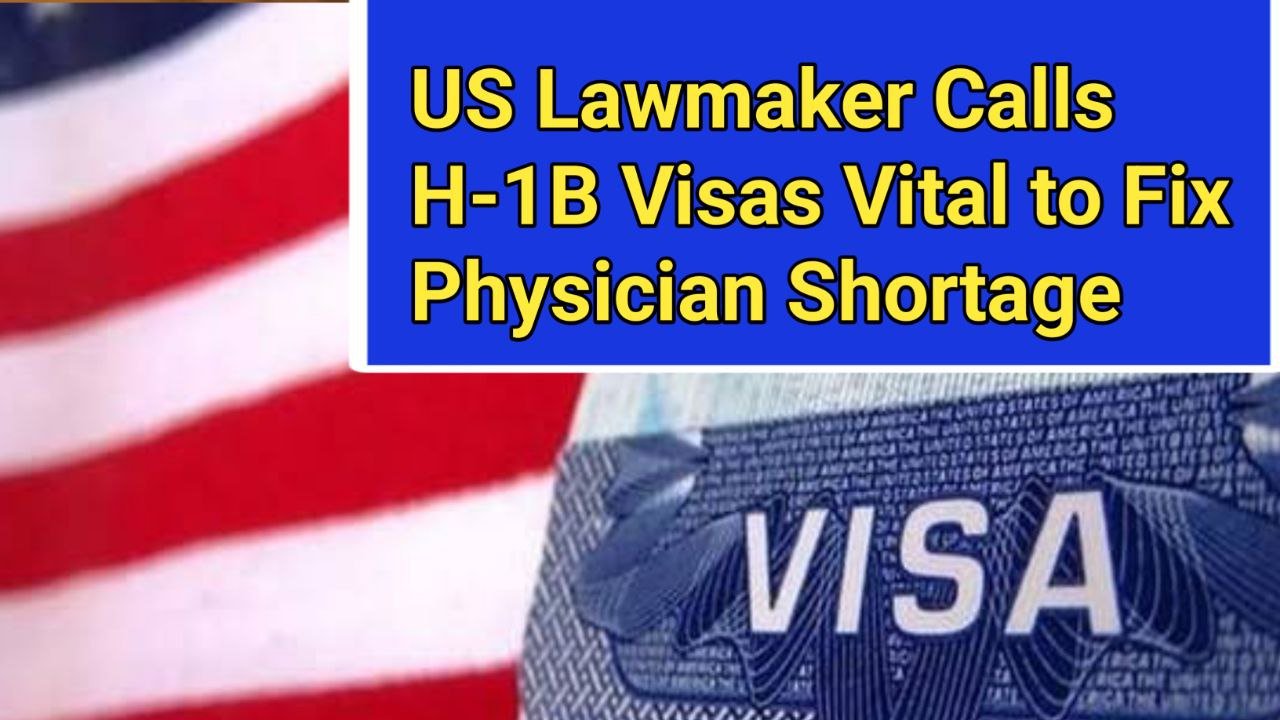The United States is facing a growing shortage of physicians, a challenge that threatens to impact healthcare access and quality nationwide. Recently, a prominent US lawmaker emphasized that H-1B visas — which allow highly skilled foreign professionals to work in the US temporarily — are a critical tool to help fill this gap. Meanwhile, online communities have responded with a mix of support, skepticism, and reassurance, reflecting the complexity of immigration and healthcare policy debates.
The Physician Shortage Crisis in the US
The US healthcare system has been grappling with a shortage of doctors for years. The Association of American Medical Colleges (AAMC) estimates that by 2034, the US could face a deficit of up to 124,000 physicians, including primary care doctors and specialists. Factors contributing to this shortage include an aging population requiring more medical care, physician retirements, and limitations on the number of medical school graduates and residency positions available domestically.
Why H-1B Visas Matter for Healthcare
H-1B visas are designed to enable US employers to temporarily hire foreign workers in specialty occupations. Many foreign-trained physicians rely on H-1B or other visa categories like J-1 or O-1 to work in the US healthcare system, especially in underserved areas.
The lawmaker’s recent statements underscored that expanding access to H-1B visas for physicians can:
- Fill critical vacancies in hospitals and clinics struggling to find qualified doctors.
- Support rural and underserved communities where physician shortages are most acute.
- Enhance cultural competence by allowing doctors familiar with diverse populations to provide care.
Public and Internet Response: ‘No Worries’ or Mixed Feelings?
While many on social media and forums have expressed optimism about easing visa restrictions to solve the physician shortage, some remain cautious. Common themes include:
- Support for visa expansion: Many recognize the urgent need for doctors and believe that facilitating H-1B visas is a practical short-term solution.
- Concerns over job competition: Some worry that increasing visas for foreign doctors could impact employment opportunities for US-trained physicians.
- Skepticism about immigration policies: Others point to the broader complexities of immigration reform and question whether visa changes alone will address systemic healthcare challenges.
- Reassurance among patients: A segment of the public is confident that allowing more qualified doctors will improve healthcare access without major downsides.
Challenges to Expanding H-1B Visas for Physicians
Despite the recognized need, several hurdles remain:
- Visa Caps and Backlogs: The current annual cap on H-1B visas limits how many can be issued, and demand far exceeds supply, leading to long waiting periods.
- Residency Training Requirements: Foreign medical graduates must complete US residency programs, which are limited in number and highly competitive.
- Legislative and Political Obstacles: Immigration policy reforms face complex negotiations in Congress, and visa expansions are often tied to broader immigration debates.
What’s Next for US Healthcare and Immigration Policy?
Healthcare experts and policymakers suggest a multi-pronged approach:
- Increase domestic medical training slots and residency positions to train more US physicians.
- Streamline visa and certification processes for qualified foreign medical graduates.
- Invest in telemedicine and healthcare technology to optimize physician resources.
- Encourage international cooperation and exchange programs to support workforce needs.
Conclusion
The call by a US lawmaker to leverage H-1B visas to address the physician shortage highlights an important facet of the healthcare workforce challenge. While the internet’s response reflects a mix of optimism and caution, the consensus is clear: tackling the physician shortage will require coordinated efforts across immigration, education, and healthcare sectors.
For patients, practitioners, and policymakers alike, the hope is that thoughtful reforms will ensure quality healthcare access for all Americans in the years to come.
